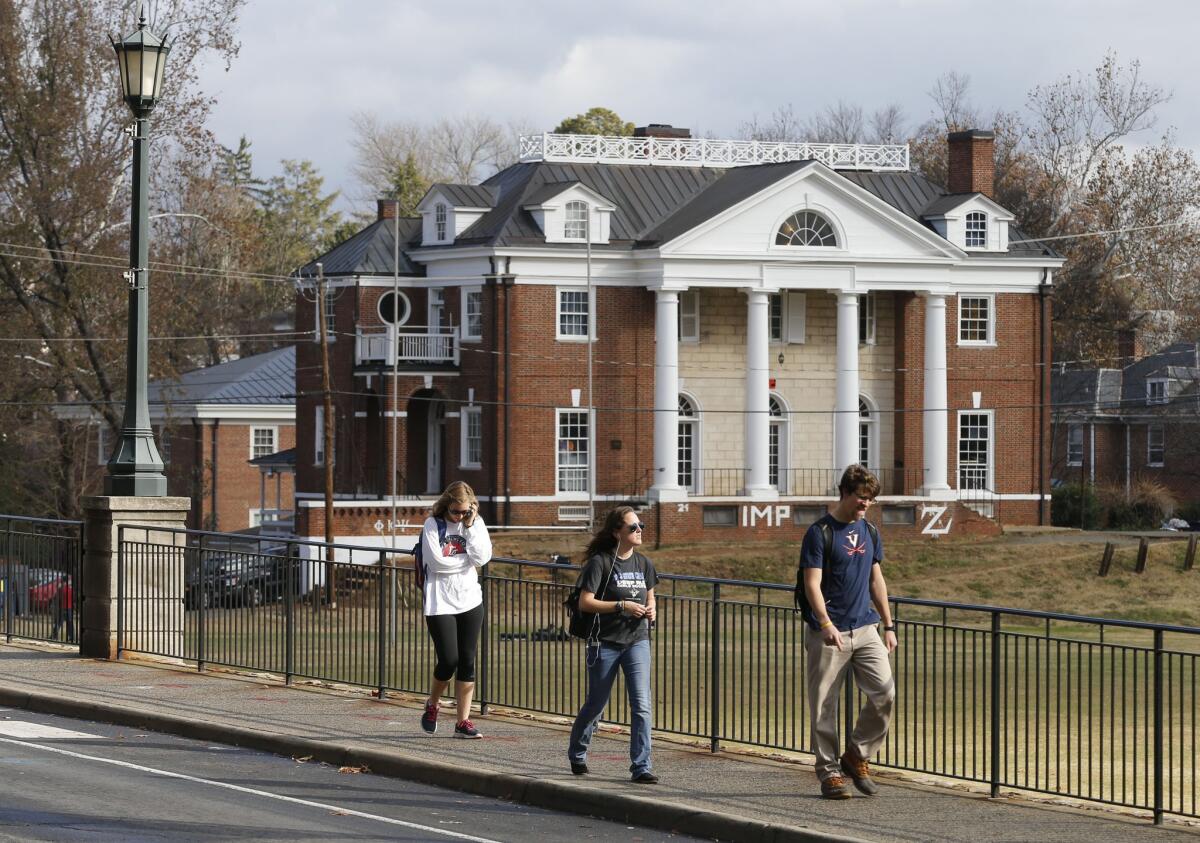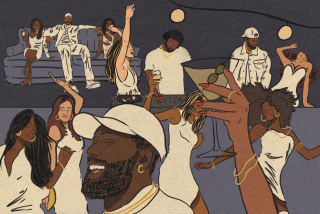Opinion: Where Rolling Stone went wrong on its campus rape story

The next chapter is in on Rolling Stone’s explosive “A Rape on Campus,” by Sabrina Rubin Erdely.
In a “Note to Rolling Stone Readers” posted today on the Rolling Stone website, the magazine’s managing editor, Will Dana, at first frames the article as he must have hoped it would have been read: As a description of “a brutal gang rape” and the University of Virginia’s “troubling history of indifference to many other instances of alleged sexual assaults.”
Then he explains, in more detail than the original article did, its reportorial underpinnings:
“Because of the sensitive nature of Jackie’s story, we decided to honor her request not to contact the man she claimed orchestrated the attack on her nor any of the men she claimed participated in the attack for fear of retaliation against her. In the months Erdely spent reporting the story, Jackie neither said nor did anything that made Erdely, or Rolling Stone’s editors and fact-checkers, question Jackie’s credibility.”
Next, a walk back:
“In the face of new information, there now appear to be discrepancies in Jackie’s account, and we have come to the conclusion that our trust in her was misplaced. “
The discrepancies aren’t spelled out but you can read more about that in the Washington Post.
Is Rolling Stone’s “note” sufficient? It’s “a step in the right direction,” says Los Angeles Times columnist Jonah Goldberg, who doubted the veracity of Jackie’s story in his column, “Rolling Stone rape story sends shock waves -- and stretches credulity,” on Tuesday.
“I understand why much of the debate has been focusing on journalistic ethics and procedures. But it has struck me as a sideshow. Yes, Erdely should have contacted the alleged rapists. But I can sympathize with her reasons for not wanting to. In fact, I can imagine a situation where that would be the right call. What kind of situation? Well, one where you had actual independent corroboration of the crime. If you don’t want to talk to the alleged perps, that’s all the more reason to nail down the story a different way. Instead, Erdely and her editors were so determined to find exactly what they were looking for, they took the word of one young woman and the say-so of a handful of activists as a substitute for proof.
“In other words, the real problem isn’t that they failed to contact the accused. The problem is that they were handed on a silver platter a story that was too good to corroborate. The fact that they didn’t try – or at least didn’t try hard enough -- to confirm it independently isn’t Rolling Stone’s real crime, it’s evidence of it.”
In her Times column on Thursday, “The University of Virginia rape Rorschach test,” Meghan Daum made it clear that “murkiness” in stories like Jackie’s only adds to “an undercurrent of suspicion that, unfortunately, continues to dominate many conversations about rape.” She finds the Rolling Stone note disappointing.
It “essentially takes the onus off of the magazine’s journalistic practices and puts the blame squarely on Jackie herself. In 24 hours, the editors and the reporter have gone from ‘we found Jackie to be entirely credible and courageous and we are proud to have given her disturbing story the attention it deserves’ to ‘we have come to the conclusion that our trust in her was misplaced. We obviously don’t know enough about Jackie and the full story yet, but it appears the magazine was too hungry for a sensational story to put the brakes on -- even when it became clear that this was a single source story. It sounds a lot like blaming the victim, which is pretty ironic.”
Follow the Opinion section on Twitter @latimesopinion
More to Read
Start your day right
Sign up for Essential California for news, features and recommendations from the L.A. Times and beyond in your inbox six days a week.
You may occasionally receive promotional content from the Los Angeles Times.







